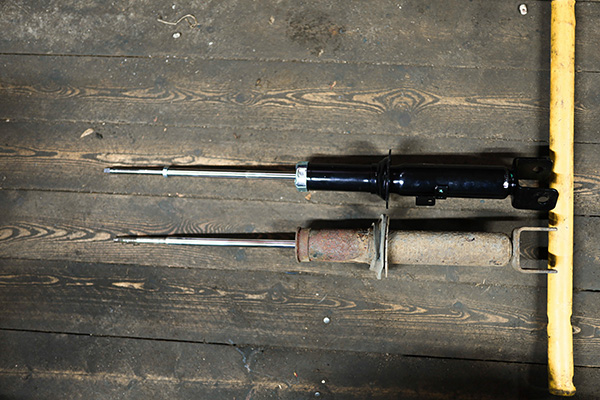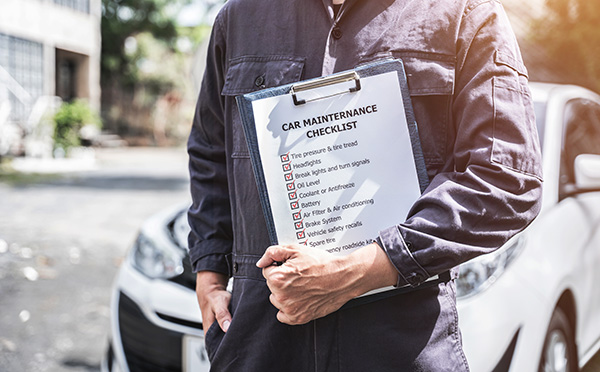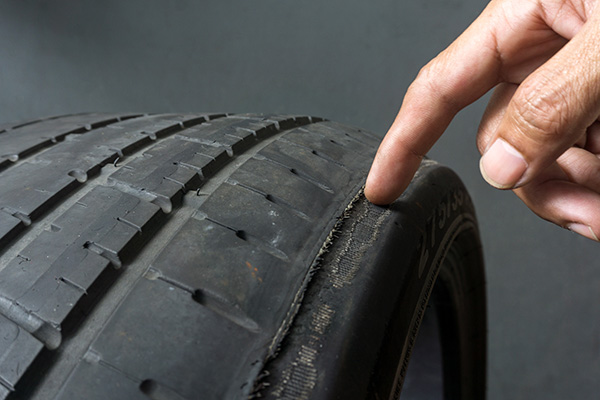Posted on 12/21/2024

Shock absorbers have a key role in your vehicle's suspension system. They don’t just ensure a comfortable ride—they’re also necessary for maintaining control, stability, and safety on the road. When your shocks start to wear out, you’ll notice changes in your car’s handling and performance that shouldn’t be ignored. But how can you tell if your shock absorbers need attention? Let’s look at the signs and what you should do about them. What Do Shock Absorbers Actually Do Shock absorbers are designed to control the movement of your car’s suspension. By absorbing the impact of bumps and uneven terrain, they help keep your tires in contact with the road. This isn’t just about comfort—it’s about maintaining proper traction for safe braking and steering. If your shocks are worn, your car’s ability to grip the road can be significantly reduced, especially during sharp turns or emergency stops ... read more
Posted on 11/29/2024

It’s pouring rain, and you flick on your windshield wipers, expecting a clear view ahead—but instead, streaks, smudges, or even patches of untouched water make it hard to see. Sound familiar? While wiper blades might not seem important to your car, they keep you safe during bad weather. If they’re not working as they should, it’s time to figure out why. Common Reasons Your Wiper Blades Aren’t Performing Well If your wipers are leaving water behind or creating a streaky mess, it could be due to one or more common issues. Let’s dig into what might be causing the problem. Worn or Damaged Blades Over time, wiper blades take a beating from exposure to sunlight, extreme temperatures, dirt, and grime. The rubber can crack, harden, or tear, which affects how effectively the blades can press against the glass. If your blades look brittle or the edges are uneven, it’s probably time for a replacement. Dirty Wi ... read more
Posted on 10/31/2024

Taking care of your vehicle goes beyond washing it regularly and keeping the gas tank full. One of the most important aspects of vehicle maintenance is choosing the right kind of oil. While conventional oil has long been a go-to choice for many drivers, synthetic oil is quickly becoming the preferred option due to its numerous benefits. But what exactly sets synthetic oil apart, and why should you consider it? What Is Synthetic Oil Before we jump into the benefits, let’s clarify what synthetic oil actually is. Unlike conventional oil, which is derived from crude oil, synthetic oil is man-made through a chemical process. It’s specifically engineered to provide superior lubrication and performance under various conditions, making it more effective in protecting your engi ... read more
Posted on 9/27/2024

Owning a vehicle comes with its own set of responsibilities, and one of the most crucial is staying on top of your car’s maintenance schedule. If you’ve recently hit a milestone like 30, 60, 90, or 120 thousand miles, you might be wondering what specific maintenance tasks you should tackle. We’ll break it down so you can keep your car running for years to come. Maintenance at 30,000 Miles When you hit that 30,000-mile mark, it’s time to roll up your sleeves for some essential tasks. This is often referred to as your car’s first major service. Here’s what you should focus on: Oil Change:Regular oil changes are vital for engine health. It keeps your engine lubricated and running efficiently. If you’ve been sticking to the recommended intervals, now’s the time to change the oil and oil filter. Air Filter ... read more
Posted on 8/27/2024

Experiencing vehicle vibrations while driving at high speeds can be unsettling and often indicates underlying issues that need attention. Whether the vibrations are mild or more intense, they can affect your comfort and, more importantly, your vehicle's safety and performance. But what exactly causes these vibrations at high speeds? Let’s look into the most common causes and why addressing them promptly is important. Unbalanced Tires One of the most common reasons for vehicle vibrations at high speeds is unbalanced tires. When the tires are not properly balanced, the weight distribution around the wheel becomes uneven. This imbalance is usually felt through the steering wheel, making the drive uncomfortable and potentially dangerous over time. Tire imbalance can happen gradually due to normal wear and tear or suddenly after hitting a pothole or curb. This is why regular tire balancing is crucial to maintaining a smooth ride. Ignoring this can lead to uneve ... read more